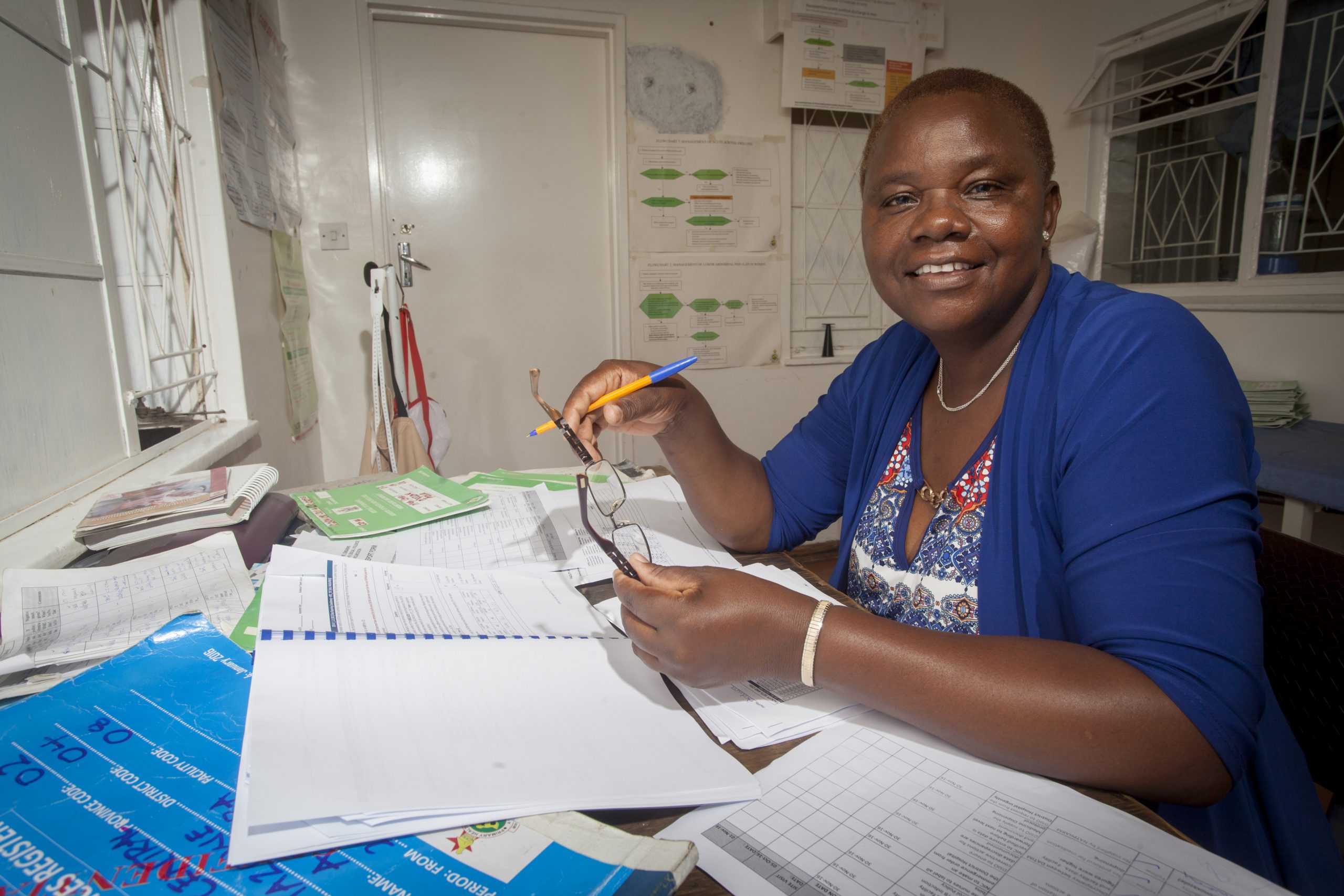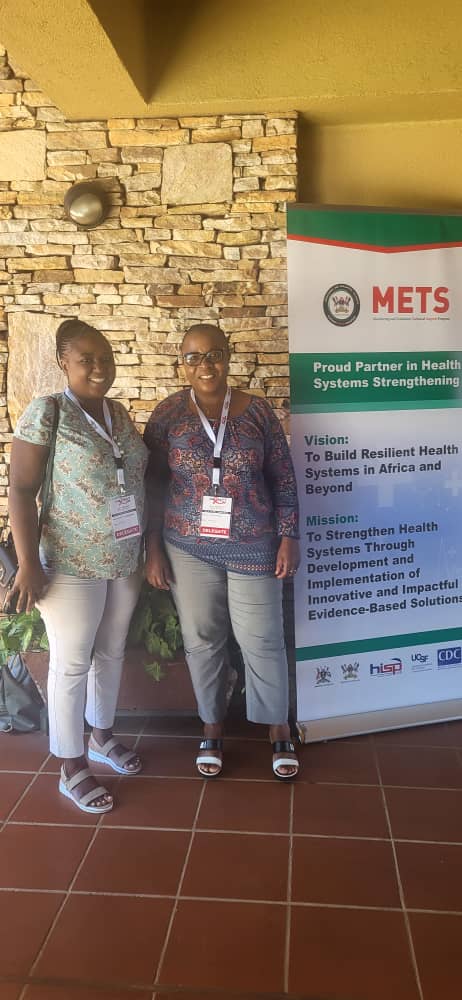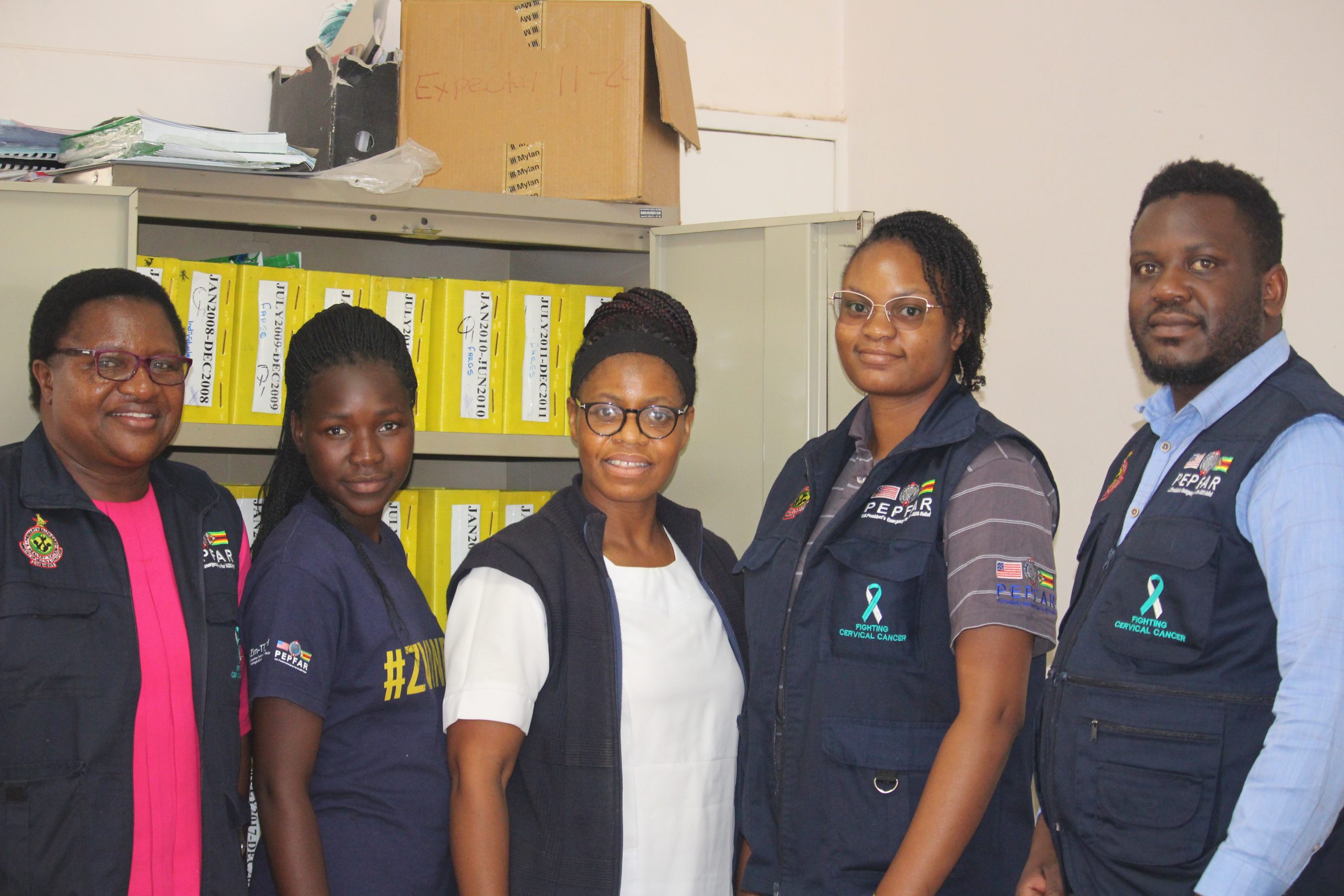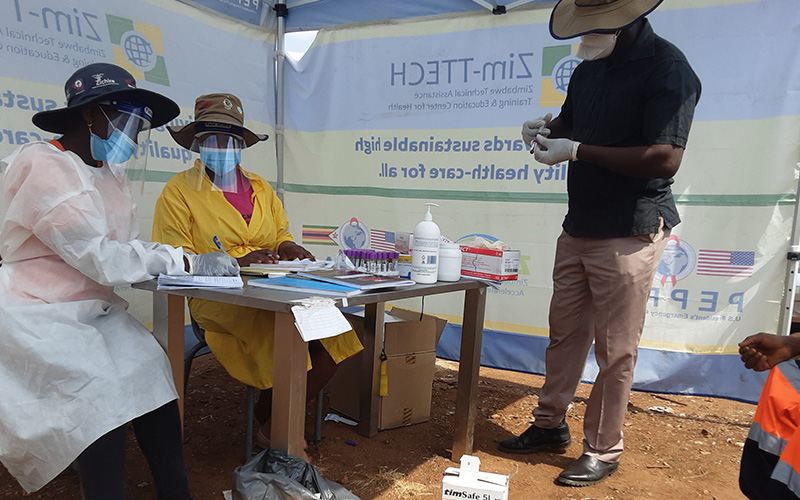In collaboration with the Ministry of Health and Child Care, ZimPAAC works in 395 facilities in 20 districts deploying more than 800 skilled health care workers to meet the UNAIDS “95-95-95” targets towards HIV epidemic control:
- Ensuring 95% of all persons living with HIV know their status by providing integrated testing
- Ensuring 95% of individuals diagnosed with HIV are initiated on antiretroviral therapy (ART) and retained in care
- Ensuring 95% of people on treatment are virally suppressed
Zim-TTECH activities encompass:
- Building the capacity, skills and knowledge of health care workers through training and site-level mentoring at health facilities to strengthen health service by improving patient linkages between HIV testing, initiation on treatment, and retention in care rates.
- Working with health facilities to improve the availability and quality of HIV prevention, treatment, care and support services through site support and quality improvement projects.
- Supporting public facilities to offer client-centered services to vulnerable and most at risk groups, such as key and priority populations.
- Increasing uptake of pre-exposure prophylaxis services through training, technical assistance and direct client support.
- Conducting index testing through community linkages activities that help clients, and their sexual partners and biological children, access HIV testing.
- Providing community outreach to identify persons needing HIV services and linking them to HIV testing and treatment services, such as partner testing and tracking of patients lost to follow-up.
- Strengthening PMTCT services in alignment with MoHCC plan to eliminate mother-to-child transmission.
- Strengthening TB/HIV collaborative activities to ensure screening, prevention and follow-up of clients.
- Distributing TB preventive therapy for ART clients.
- Providing differentiated service delivery through multi-month refills, Family and Community ART Refill Groups.
- Increasing access to services for children and adolescents through Africaid’s Community Adolescent Treatment Supporters (CATS)




